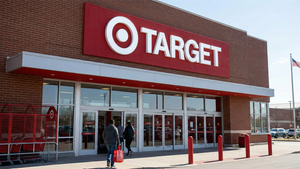Today, General Mills and Regrow Agriculture announced a multi-year partnership to monitor agricultural practices and their environmental impacts across 175 million acres of farmland in North America, Europe, and South America. One hundred and seventy-five million acres represents General Mills’ estimated supply sheds – the regions where the company sources its key ingredients, like wheat, oat, and dairy. Within the total acreage being monitored, General Mills sources its ingredients from roughly three million acres of farmland each year.
Regrow Agriculture supports General Mills’ commitments to advance regenerative agriculture on one million acres of farmland by 2030, reduce absolute greenhouse gas emissions – 60 percent of which are from agriculture – across its value chain (scopes 1, 2 and 3) by 30 percent by 2030, and ultimately achieve net zero emissions by 2050.
General Mills will leverage Regrow Agriculture’s software platform, Sustainability Insights, and its technology and data capabilities, including Operational Tillage Information System (OpTIS) and DeNitrification-DeComposition (DNDC), to monitor trends and estimate impacts where regenerative agriculture principles are being advanced on farmland.
OpTIS is a remote sensing technology that uses satellite imagery to monitor and verify regenerative agriculture techniques, such as tillage reduction and cover-crop adoption. The information from OpTIS is then fed to DNDC, which models nutrient cycling in the soil to estimate changes in net greenhouse gas emissions.
Regrow Agriculture’s dynamic monitoring and modeled outputs will integrate with General Mills’ existing regenerative agriculture and climate tracking systems. The collaboration will also enable General Mills to update its key ingredient emission factors and deliver a more accurate emissions baseline. Emission factors will be updated annually and will incorporate estimated changes in soil carbon due to changes in farm management techniques and land-use. General Mills and Regrow detailed this new approach to improving corporate climate inventories in a white paper with SustainCERT earlier this year.
“We believe regenerative agriculture is the most promising solution to reach our climate goals and create positive planetary outcomes,” said Mary Jane Melendez, chief sustainability and global impact officer. “As we advance regenerative agriculture, quantifying the environmental outcomes is essential. Our goal is to show how outcomes, like soil health and carbon sequestration, improve as farmers transition to regenerative agriculture systems. We have confidence that through our partnership with Regrow Agriculture, we can track the advancement of regenerative agriculture at scale, benefitting General Mills and the broader industry, as well as understand trends in adoption and where to bring future investment.”
In 2018, General Mills and Dagan, now Regrow Agriculture, launched a pilot to understand tillage reduction and cover-crop adoption in Western Manitoba, Canada, and North Dakota oat supply sheds. Regrow’s OpTIS technology remotely sensed crop residue and plant growth to document prevalence of tillage reduction and cover-crop adoption. This farm management information was then fed to the DNDC data model to estimate changes in net greenhouse gas emissions. In 2021, General Mills and Regrow Agriculture partnered to scale monitoring of agricultural practices and greenhouse gas emissions reductions for the entire state of Kansas. These two projects helped shape General Mills’ regenerative agriculture and greenhouse gas measurement and reporting strategy, ultimately leading to this expanded partnership.
“We are excited to support General Mills’ leadership of a supply shed-based approach to corporate scope 3 emissions and commitment to direct impact monitoring and modeling to deliver on their net-zero goals,” said Anastasia Volkova, chief executive officer, Regrow Agriculture. “Regrow’s scalable science and technology platform continues to serve agriculture and food industries, bringing transparency and scalability to monitoring, and measurement of greenhouse gas emissions.”
General Mills and Regrow Agriculture will also explore joint research opportunities to add additional insights into the platform over time, like water quality, biodiversity, and supply chain resiliency. The partners plan to share insights from their new approach with other interested stakeholders over the next several years. The two organizations see opportunity for additional companies to adopt a similar approach to supply shed impact quantification and hope the collaboration sparks collective action to accelerate regenerative and climate-resilient agriculture movements.
About General Mills
General Mills makes food the world loves. The company is guided by its Accelerate strategy to drive shareholder value by boldly building its brands, relentlessly innovating, unleashing its scale and being a force for good. Its portfolio of beloved brands includes household names such as Cheerios, Nature Valley, Blue Buffalo, Häagen-Dazs, Old El Paso, Pillsbury, Betty Crocker, Yoplait, Annie’s, Wanchai Ferry, Yoki, and more. Headquartered in Minneapolis, Minnesota, USA, General Mills generated fiscal 2021 net sales of U.S. $18.1 billion. In addition, the company’s share of non-consolidated joint venture net sales totaled U.S. $1.1 billion.
About Regrow Agriculture
Regrow Agriculture’s mission is to make resilient agriculture ubiquitous on every acre, globally. Their vision is for agriculture to be driven by science and technology to restore the environmental balance globally and to nourish the population and to be equitable for everyone. Read more at www.regrow.ag
View source version on businesswire.com: https://www.businesswire.com/news/home/20220614005664/en/
General Mills and Regrow Agriculture announced a multi-year partnership to monitor agricultural practices and their environmental impacts across 175 million acres of farmland in North America, Europe, and South America.
Contacts
Global Communications
Media.Line@GenMills.com
763-764-6364
Elleni Paulsen
Elleni@regrow.ag
612-209-1597





